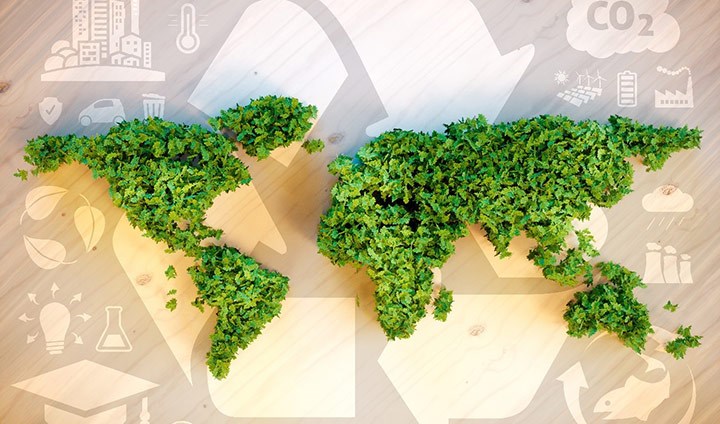Environment and climate

We work actively with environmental matters. The goal is that our activities should have as little environmental impact as possible and that everyone active here at Örebro University should be given the possibility to contribute to this. Doing it right should be easy, and we implement measures ranging from energy use in our facilities to recycling, food and transportation.
In the environmental management system:
- Environmental policy
- Planning
- Implementation
- Follow-up
- Management review
- Continuous improvement
Örebro University is working broadly with questions connected to environment and climate. The university is to collaborate effectively with other players in society, nationally and internationally, with respect to time, costs and environmental impact.
Sustainable collaboration and business travel
The university’s principal tasks are research and education. To pursue these, the university needs to collaborate with others, nationally and internationally. For many higher education institutions, business travel by air is the single largest source of greenhouse gas emission, and Örebro University is no exception. We are to reduce the climate impact from our business travel and as far as possible opt for alternatives that do not require travel, such as online meetings. However, we also need to be aware that there is a risk of a conflict of goals between the university’s principal tasks of education and research and the goal of reducing climate impact from business travel.
Efficient and effective use of facilities
The university is to have appropriate and effectively utilised facilities with respect to economy, function, technology, and energy consumption.
One of the six principles in the basic values for central government employees is to combine efficiency with service and accessibility. To achieve sustainability, the university must endeavour to offer facilities that are adapted to its activities and those using them, and that facilities are not left unused unnecessarily. The university should have energy-efficient buildings with energy-efficient operation.
Sustainable consumption
We want to reduce the university’s negative impact on the environment and contribute to social sustainability. We are therefore to ensure that our procurement, purchasing and waste management processes have the least possible negative environmental impact and consider social sustainability aspects.
Örebro University’s environmental review indicates that some of the areas with significant environmental impact include the use to chemicals and detergents, the generation of waste, and the use of IT products. Through responsible sourcing and procurement, the university can contribute to improved environmental and social sustainability considerations in the supply chain and to increased resource efficiency by considering a life cycle perspective. When justified by the nature of the procurement, demands for environmental and social sustainability considerations must be made on suppliers, products and services.
The climate framework
Örebro University has joined Klimatramverket, a climate framework for higher education institutions. Those institutions who have endorsed the framework each commit to preparing a concrete action plan to contribute to meeting the 1.5 degree target in the Paris Agreement.
The climate framework was set up on the initiative of higher education institutions with the ambition to clearly contribute to the climate transition in line with society’s national and international commitments.
